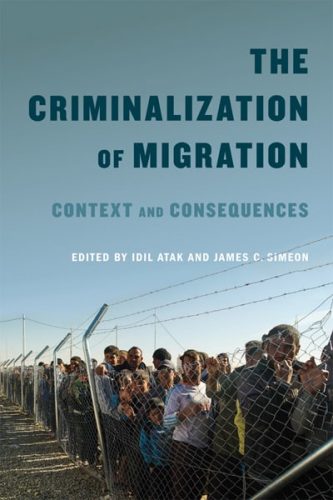
Additional NOTES
By Idil Atak and James C. Simeon (editors)
Date
DISCUSSION LEADER
DISCUSSION LEADER'S
SECTOR
Topic Category
Book Description
A comprehensive, interdisciplinary, and comparative evaluation of the criminalization of migration both within Canada and abroad.
With over 240 million migrants in the world, including over 65 million forced migrants and refugees, states have turned to draconian measures to stem the flow of irregular migration, including the criminalization of migration itself. Canada, perceived as a nation of immigrants and touted as one of the most generous countries in the world today for its reception of refugees, has not been immune from these practices.
This book examines “crimmigration” – the criminalization of migration – from national and comparative perspectives, drawing attention to the increasing use of criminal law measures, public policies, and practices that stigmatize or diminish the rights of forced migrants and refugees within a dominant public discourse that not only stereotypes and criminalizes but marginalizes forced migrants. Leading researchers, legal scholars, and practitioners provide in-depth analyses of theoretical concerns, legal and public policy dimensions, historic migration crises, and the current dynamics and future prospects of crimmigration. The editors situate each chapter within the existing migration literature and outline a way forward for the decriminalization of migration through the vigorous promotion and advancement of human rights.
Building on recent legal, policy, academic, and advocacy initiatives, The Criminalization of Migration maps how the predominant trend toward the criminalization of migration in Canada and abroad can be reversed for the benefit of all, especially those forced to migrate for the protection of their inherent human rights and dignity.

